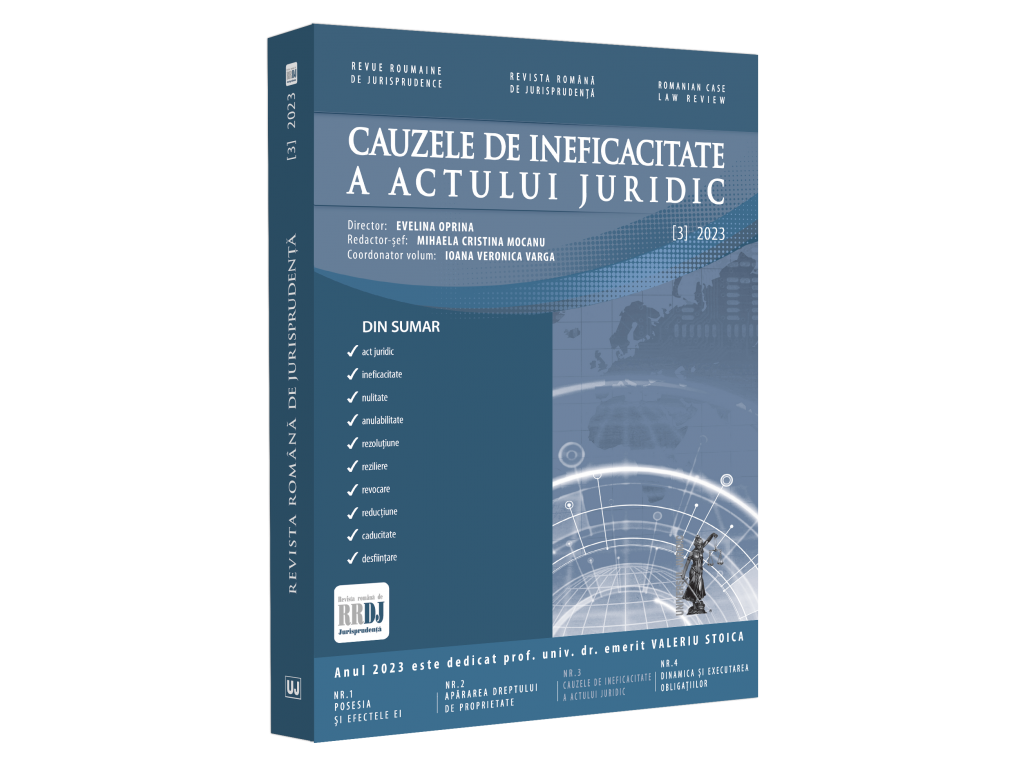Expropriation. Action for a declaration that the expropriation acts are obsolete for non-fulfilment of the public interest purpose
JURISPRUDENȚĂ COMENTATĂ ȘI ADNOTATĂ
Abstract
The obsolescence is a cause of ineffectiveness of the valid legal act concluded, which consists in its deprivation of any effects due to the intervention, independently of the will of its author, of a circumstance subsequent to its conclusion. The obsolescence is non-retroactive in the sense that it has the effect of removing the effects of the act only for the future, not for the past. Likewise, a valid legal act which has not yet produced effects and which is due to an event occurring after the valid formation of the act and independent of the will of the author may be declared null and void.
However, in the present case, the acts whose obsolescence is claimed to have had legal consequences from the date on which they were issued, that is to say, at the time when the ownership of the expropriated land was transferred from the property of the plaintiffs to that of the City of N.
To request, subsequent to that legal event, a declaration of obsolescence in order to return the land to the property of the expropriated persons is tantamount to recognising the retroactive effect of the lapse, given that the legal acts concerned by the lapse have already produced significant legal consequences.
The lack of achievement of the purpose for which the expropriation act was issued could have been a ground for obsolescence if it had been caused by an event occurring after the expropriation act was issued and beyond the control of its author. However, the failure to achieve the public utility purpose for which the expropriation was carried out, by not using the expropriated land, is attributable solely to the author of the expropriation and is an aspect which the appellants have relied on in other disputes in the procedure governed by the special law on expropriation.








